The Apple iOS 9 Review
by Brandon Chester on September 16, 2015 8:00 AM EST- Posted in
- Smartphones
- Apple
- Mobile
- Tablets
- iOS 9
Siri
Siri debuted with iOS 5 on the iPhone 4s, and at the time was really the first virtual assistant integrated into the core of a mobile OS. It has faced steady competition from Google Now and now from Microsoft's Cortana, and in my experience it seems that Google Now still holds an advantage as far as speed and accuracy goes. However, at WWDC 2015 Apple detailed a number of statistics relating to Siri, and showed how Siri is being improved in iOS 9. According to Apple, Siri serves over one billion requests every week, and has gotten 40% more accurate in the past year, with a word error rate of just 5%. Siri has also gotten 40% faster in the last year, and having tried using Siri again for the purposes of this review it does seem that it has improved in these respects.
iOS 9 focuses on making Siri more intelligent and proactive. Part of this just involves simple improvements, such as how conversions are now done natively instead of referencing Wolfram Alpha, which ends up being much faster. In other cases, the fact that Siri is more aware of context allows for new uses that weren't previously possible. You can see above how asking Siri to remind me to read an article created a reminder which would have an embedded link to the webpage I was reading when it reminds me after I arrive home. You can also use Siri to make specific searches, like looking for photos based on a time and location. However, the contextual awareness doesn't go near as far as Google Now on Tap which will be launching in Android M and will allow you to ask questions in natural language about the content you're viewing and get relevant answers.
Ultimately the local and front end improvements to Siri as a voice assistant are not enormous, and the real improvements are those that Apple continues to make on the back end to make Siri more accurate and responsive when you use it. Since these improvements have nothing to do with the timeline of iOS releases - a consequence of Siri being as much a service as it is an OS function - there's not much I can say about them beyond what Apple has said. However, Siri has been expanded in iOS 9, and has now taken over what was previously Spotlight Search. The new search screen and enhanced universal search on iOS are what I'll look at next.
Universal Search
iOS 3 brought Spotlight Search from OS X to the iPhone. It was a screen you could access by swiping to the left of your first home screen, and it allowed you to search for applications and a limited set of content on your device. With the iOS 7 redesign this screen was eliminated, and Spotlight was now something you accessed by swiping down on any home screen. iOS 9 changes things up, and in a case of what you might call indecision Apple has decided to put a search section both in the old Spotlight Search area, and the screen accessed by swiping down on a home screen. However, this new search section to the left of your home screens has a couple of new features which are worth mentioning.
In addition to having search, the new search screen displays suggestions from Siri for apps you may want to open or contacts you want to call or send a message to. My problem is that I don't understand the reasoning behind the suggestions that I'm being given. The contacts seem to be chosen well, but only because I only contact four or five people frequently. The apps just seem nonsensical. I am very sure that I have never opened the YouTube app at 12:30AM in my entire life. The news selections are also terribly irrelevant. That isn't to say that all the stories themselves are irrelevant, but considering the fact that the majority of my Apple News sources are technology related I would love to know why I have never ever seen a single technology article in this list.
As for the searching itself, that's where things improve. Search has been given the same upgrades as Siri, with support for making conversions. You can also do voice searches which is a long overdue addition. Searching for general terms is also greatly improved. For example, searching for Samsung gives me the Samsung website as a suggested site, news from Apple News, general results from Bing, apps from Samsung on the App Store, Samsung's Wikipedia page, contact suggestions from people at Samsung that I've sent emails to, and even more. This is honestly the level of depth that search should have had on iOS for a long time now, and it's great to finally have a reliable way to search for something on the device with only a simple search term.
With iOS 9 Apple is also providing a search API for developers, which will allow them to add their own applications to the sources that are searched through. This means that an app like Twitter could allow you to search for tweets that you favorited or retweeted using the built in iOS search bar, and Microsoft Office could show you a document based on your search for a phrase that is inside it.
Search is definitely an area where iOS has been lacking for a long time now, and the additions Apple is making in iOS 9 are welcomed but definitely overdue in many cases. I think being able to search through many applications is great, and the integration with Siri to provide results like contact suggestions can be very helpful. At the same time, I really think the screen to the left of the home screens is poorly thought out and not useful because you can access search itself from any home screen. I feel like there was an initiative at Apple to create some sort of competition for the Google Now card screen, but it really didn't turn out well.
iCloud Drive
This is more of a power user app, and it's put in the OS somewhat like an easter egg. Basically there's an application that lets you view, download, and open files stored in iCloud Drive. The UI is essentially just the iCloud Drive picker put into an app with some changes, and you can see it below.
There's really not much to say about the app. Everything is organized the same way iCloud Drive is in Finder on OS X and on the iCloud website. You can download files, move them to different folders, and open them or copy them to an application of your choosing. It's just something to make note of if you ever want to manage your drive from your iPhone or iPad.


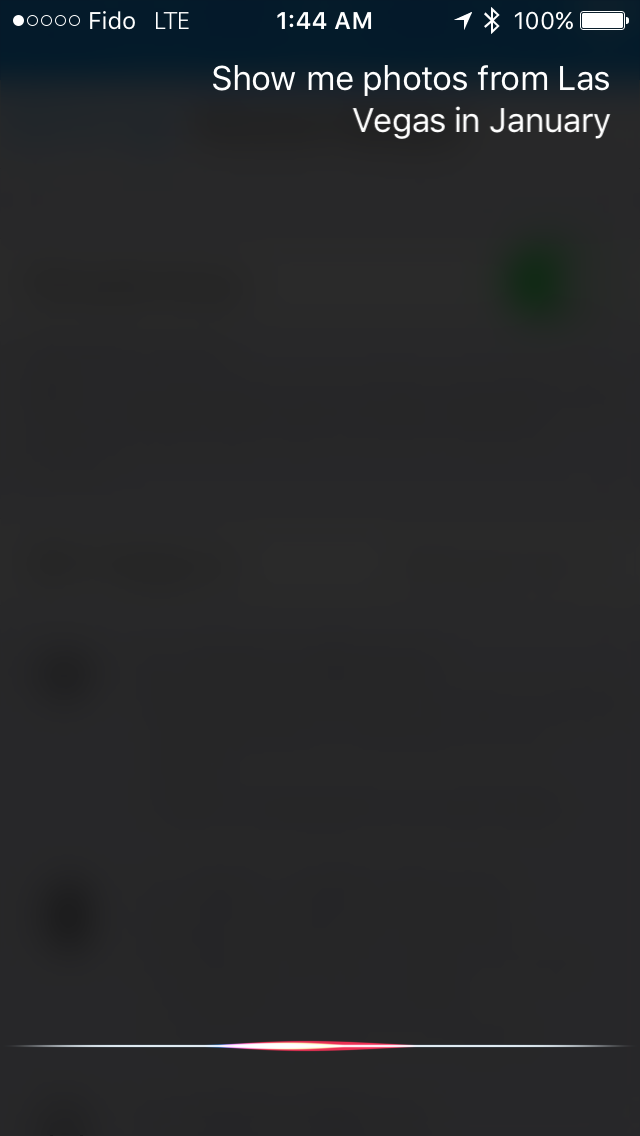
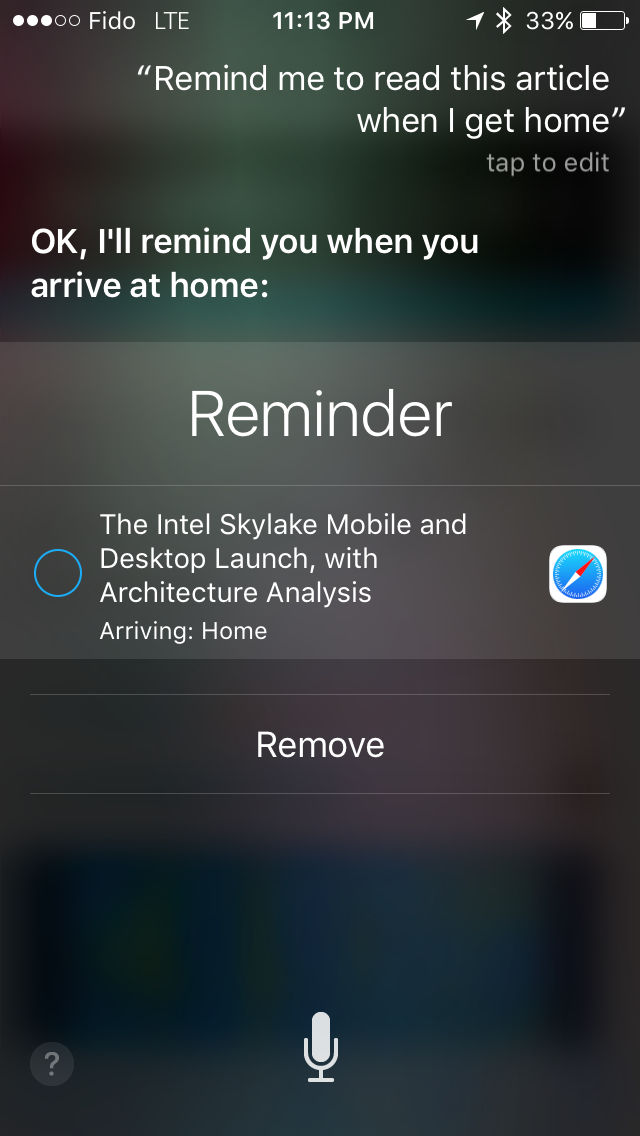
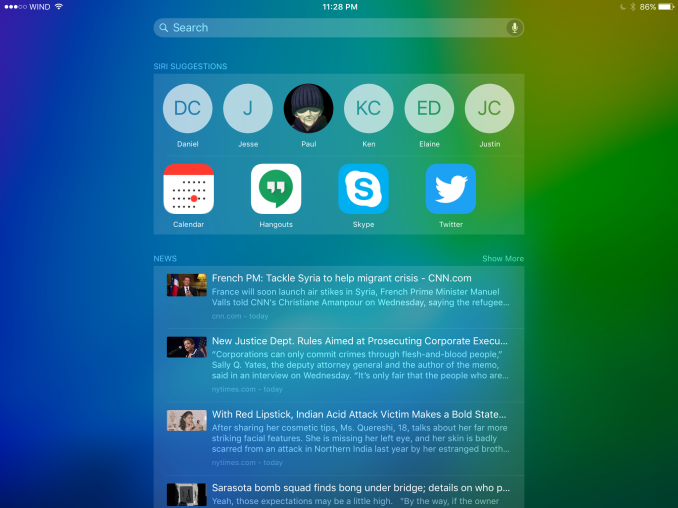
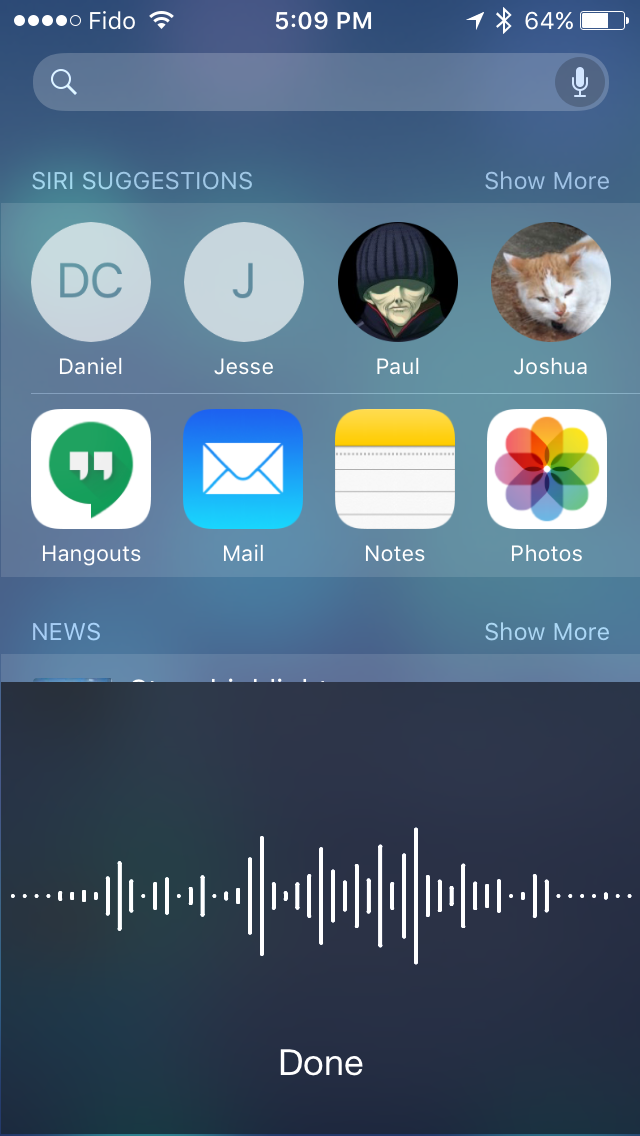
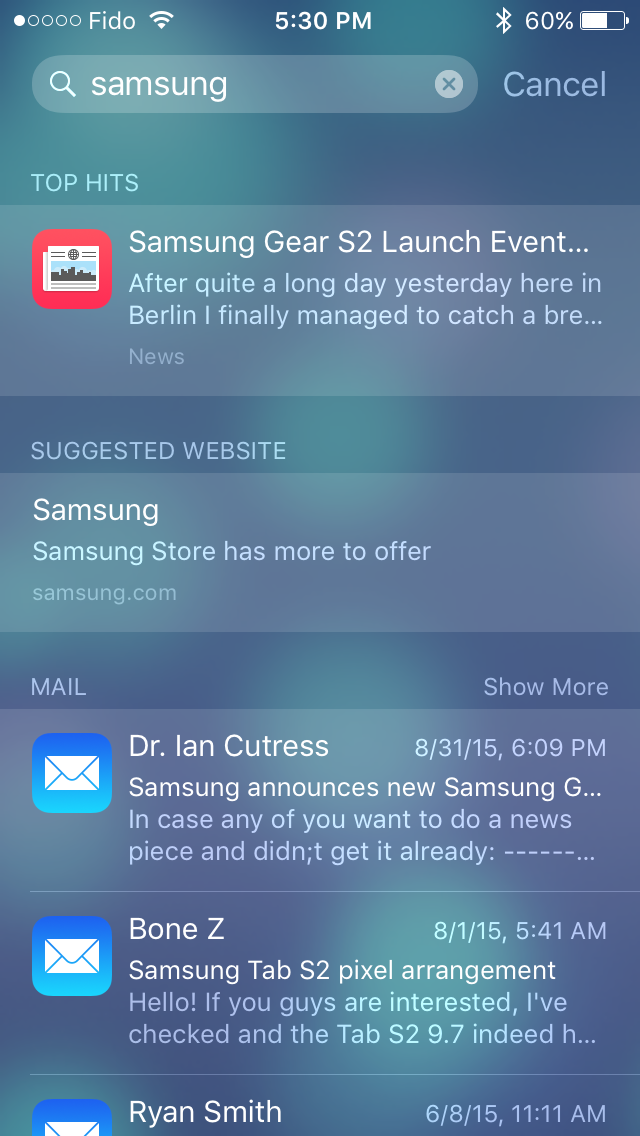
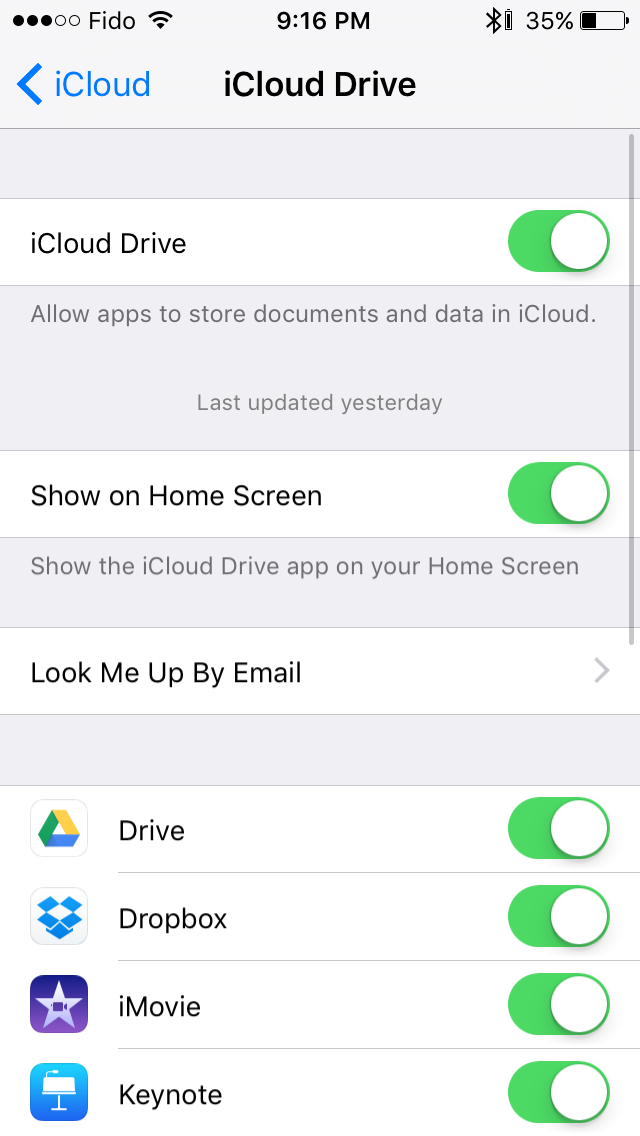
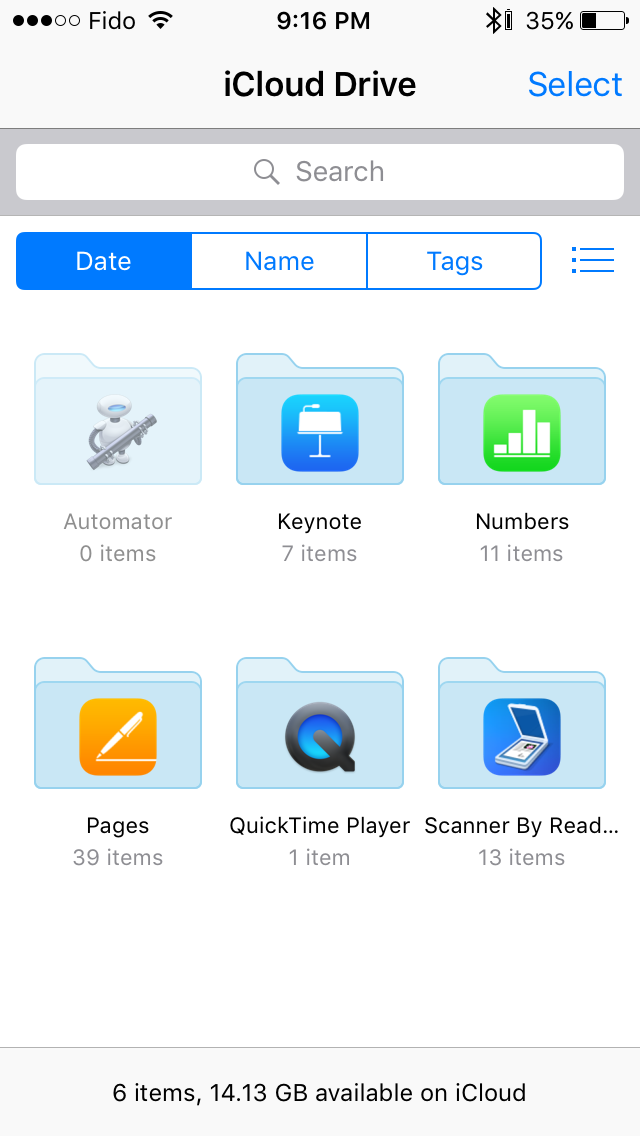








227 Comments
View All Comments
tuxRoller - Wednesday, September 16, 2015 - link
Hey, they just caught up to Wayland with Presentation (in terms of display latency).http://ppaalanen.blogspot.com/2015/02/weston-repai...
freeskier93 - Wednesday, September 16, 2015 - link
The news app has actually been one of my favorite new features, I was surprised at how well the basic RSS feed articles looked. I'm guessing you guys will start to support the app? I noticed Ars just started publishing articles for News.farhadd - Wednesday, September 16, 2015 - link
I just tried selecting more than 5 photos in the Photos app and it doesn't let me send them to Mail. Are you sure that limit has been lifted?farhadd - Wednesday, September 16, 2015 - link
I figured out my issue. You still cannot select more than 5 photos from the photos app to send directly to mail, but you can select them and use the "Copy" command, then paste that into a Mail message.andrewaggb - Wednesday, September 16, 2015 - link
Personally I find the apps/ecosystem the most important part.I think Android/Apple are pretty much equal on phones. I've gone android because I like google maps/navigation and use google apps with a custom domain. Chrome on android sync's pretty well with desktop chrome etc.
For media tablets I think apple is still way ahead and my ipad's get way more use.
Productivity tablets, I guess depends what you need to be productive. The ipad is thinner, lighter, gets better battery life. I suppose if you just need a web browser and email it's probably fine.... but when I work I average around 20GB of ram in use from apps, tabs, a couple virtual machines etc on my desktop and can get by on 8GB of ram if I shut some stuff down. I have an ultrabook with 8GB that is just useable (core-m & ssd), I could have used a Surface Pro 3 (many friends and co-workers have them) but I wanted an attached keyboard.
I couldn't use an ipad pro for productivity. I could use a Surface Pro 3. At the pace we're going, maybe in 8 years or something IOS will have enough windows features I could use it.
KoolAidMan1 - Wednesday, September 16, 2015 - link
It isn't a 1:1 comparison between RAM usage on a mobile operating system and a desktop one. There's a lot less overhead we're talking aboutkidbear75 - Wednesday, September 16, 2015 - link
Do you think so called as "Pro" productivity application has a lot less overhead in mobile operating system than full fledged operating system? Do you expect video, photo or audio editing software has a lot less overhead because it is designed for mobile operating system while the raw video or audio material consumes most of the RAM? What about Android? Could you keep the same claim for Android tablet?Yes, they are with different operating system, one with limited functionality designed for mobile use while the other with less limitation in functionality. I don't think you can justify one has limitation because it is based on mobile operating system when it is named as "Pro". If it is really a limitation, Apply may have chosen OS X instead of iOS.
nerd1 - Wednesday, September 16, 2015 - link
Windows 10's surprisingly lean, and 2GB works fine unless you open tens of tabs in browser. And if you do the same 'pro application' you will end up using the same amount of memory no matter what OS you use. In fact, due to higher resolution of IPP it may put MORE overload instead.Oxford Guy - Tuesday, September 22, 2015 - link
2 GB works reasonably well in Yosemite also, thanks to the memory compression. Mountain Lion choked on 2 GB.andrewaggb - Thursday, September 17, 2015 - link
You're right it wouldn't be 1:1. Also mobile apps are better at unloading parts of themselves from memory when not active and the OS aggressively unloads apps, both of which would help.I'm just trying to envision even a basic development scenario and see how it would work on IOS. I'd want the IDE open, running code with an attached debugger, I'd need the website open in the browser, I'd need a database of some kind. Right, pretty basic stuff so far, I don't think an iPad pro could do that, at least not the way I am used to. A fully integrated tool, like Coda https://itunes.apple.com/ca/app/coda-for-ios/id500... could do most of it - but I'd have to give up all my current tools and workflow to do it.
I suspect many professionals are in the same situation, would you give up your current tools and workflow for increased battery life and portability? I think this is a case of the hardware being ready and the software not being ready. Apple has done well enough that the software might come in a few years (why I said 8 years), but at least for me there really isn't a choice between the surface pro and the ipad pro, IOS and it's apps aren't up to it. I bet there are many use cases where the ipad pro would work well, I just don't think they are my use cases.